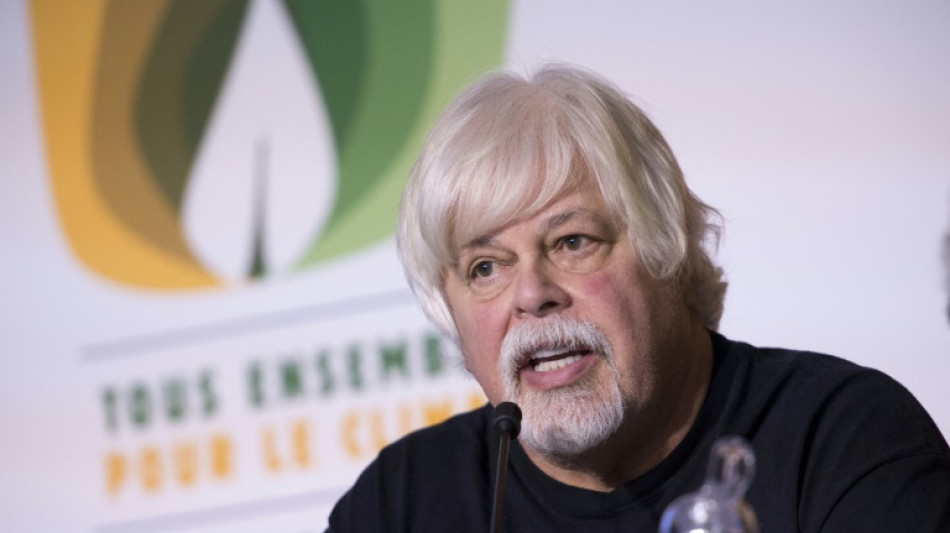

Anti-whaling activist Watson to face Greenland detention hearing
American-Canadian anti-whaling activist Paul Watson, arrested in July in Greenland, will face a judge Thursday who will rule on his continued detention as a possible extradition requested by Japan looms.
The district court in Nuuk -- the capital of the autonomous Danish territory -- will rule on whether there is cause to extend his detention for up to another four weeks.
"The hearing on August 15, 2024 will therefore not deal with the question of whether or not to extradite him," police said in a statement.
The decision on whether he will be extradited to Japan, which ultimately will be up to the Danish Ministry of Justice, will be taken independently.
Nevertheless, it will still be discussed at the hearing, his lawyer Jonas Christoffersen told a press conference on Monday.
"As a starting point, you would say that a person should be detained during the extradition case, because otherwise there could be a risk that the person would leave," Christoffersen said.
Watson, who featured in the reality TV series "Whale Wars", founded Sea Shepherd and the Captain Paul Watson Foundation (CPWF), and is known for radical tactics including confrontations with whaling ships at sea.
The 73-year-old campaigner was arrested on July 21 when the ship John Paul DeJoria docked in Nuuk to refuel.
- 'Red Notice' -
The vessel was on its way to "intercept" a new Japanese whaling factory vessel in the North Pacific, according to the CPWF.
Watson was arrested on the basis of a 2012 Interpol "Red Notice" after Japan accused him of causing damage to one of its whaling ships in the Antarctic two years earlier and causing injury.
Only Japan, Iceland and Norway allow commercial whaling.
Lamya Essemlali, president of Sea Shepherd's French branch, has told AFP that Watson believes his arrest to be political, with Japan wanting him because he is a "political symbol".
Essemlali explained Monday that the arrest warrant had been made confidential and was no longer listed on Interpol's website, and Watson would otherwise not have stopped in Nuuk.
"All this was orchestrated. After all, 14 federal police officers and a Danish public prosecutor were put on a direct plane to Greenland to arrest Paul."
Japan asked Danish authorities to extradite him at the end of July.
In Japan, Watson faces a charge of causing injury, which can carry up to 15 years in prison or a fine of up to 500,000 yen ($3,300).
He also faces a charge of forcible obstruction of business, which carries a penalty of up to three years in prison or a fine of up to 500,000 yen.
- 'Presumption of guilt' -
At the upcoming hearing in Nuuk, Watson's lawyers intend to argue the detention he has already been subjected to is not proportional to the offence of which he is suspected.
"We will argue that the three weeks that have passed is more than enough and you can't extend it further than that," Christoffersen said.
With Watson's history of activism, Essemlali said that Japan would not be lenient, and given his age he would likely spend the rest of his life incarcerated.
"We absolutely want to avoid his extradition to Japan, because we know that if he is extradited to Japan, he won't get out alive", Essemlali said.
Francois Zimeray, another one of Watson's lawyers, also blasted the Japanese legal system on Monday.
"In Japan, there is a presumption of guilt and the prosecutors are proud to announce that they have a 99.6 percent conviction rate," Zimeray said.
Watson's arrest has sparked a series of protests calling for his release.
French President Emmanuel Macron's office has asked Denmark not to extradite the activist, who has lived in France for the past year.
T.Clohessy--IP




